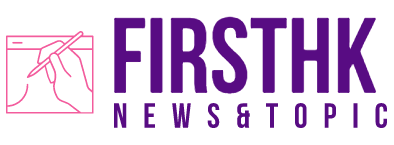
Dermoscopy: Unveiling Skin Lesions through Varied Perspectives
Dermoscopy, a pivotal tool in dermatology, offers a multi-dimensional view of skin lesions, allowing clinicians to explore them from various angles. dermoscopy price Let's examine dermoscopy through different lenses:
Clinical Diagnosis Perspective:
Dermoscopy enhances clinical diagnosis by providing magnified views of skin lesions and unveiling subtle features that are not visible to the naked eye. By analyzing dermoscopic patterns and structures, dermatologists can accurately differentiate between benign and malignant lesions, guiding appropriate management strategies.
Therapeutic Response Monitoring Perspective:
Dermoscopy aids in monitoring therapeutic responses by enabling clinicians to track changes in lesion morphology and vascularity over time. This allows for the assessment of treatment efficacy and disease progression, facilitating timely adjustments in therapeutic regimens and optimizing patient outcomes.
Preventive Medicine and Screening Perspective:
Dermoscopy plays a crucial role in preventive medicine by facilitating early detection of skin cancer and other dermatological conditions. Through regular screenings and surveillance, dermatologists can identify suspicious lesions at their earliest stages, enabling prompt intervention and potentially preventing disease advancement.
Cosmetic Dermatology Perspective:
In cosmetic dermatology, dermoscopy assists in the assessment of aesthetic concerns such as pigmentation, texture irregularities, and vascular abnormalities. By visualizing these features in detail, clinicians can tailor cosmetic treatments to address specific patient needs and achieve desired outcomes.
Dermatopathological Correlation Perspective:
Dermoscopy complements traditional histopathological examination by providing insights into the surface morphology and vascular patterns of skin lesions. Dermatologists can correlate dermoscopic findings with histological features, improving diagnostic accuracy and enhancing our understanding of disease processes.
Telemedicine and Remote Consultation Perspective:
Dermoscopy enables telemedicine consultations and remote dermatological assessments, particularly in underserved or remote areas. Portable dermoscopy devices and digital imaging systems allow for virtual examinations, facilitating access to specialized care and expert guidance regardless of geographical barriers.
Education and Training Perspective:
Dermoscopy serves as a valuable educational tool for dermatologists in training and healthcare professionals. Through hands-on workshops, online resources, and mentorship programs, practitioners can develop proficiency in dermoscopic interpretation, enhancing diagnostic skills and improving patient care.
In summary, dermoscopy offers a multi-faceted approach to skin lesion evaluation, encompassing clinical diagnosis, therapeutic monitoring, preventive medicine, cosmetic dermatology, dermatopathology, telemedicine, education, and training. By embracing these diverse perspectives, dermatologists can leverage the full potential of dermoscopy to provide comprehensive care, promote early detection, and enhance patient outcomes.









.jpg?x-oss-process=image/resize,p_100/format,webp)